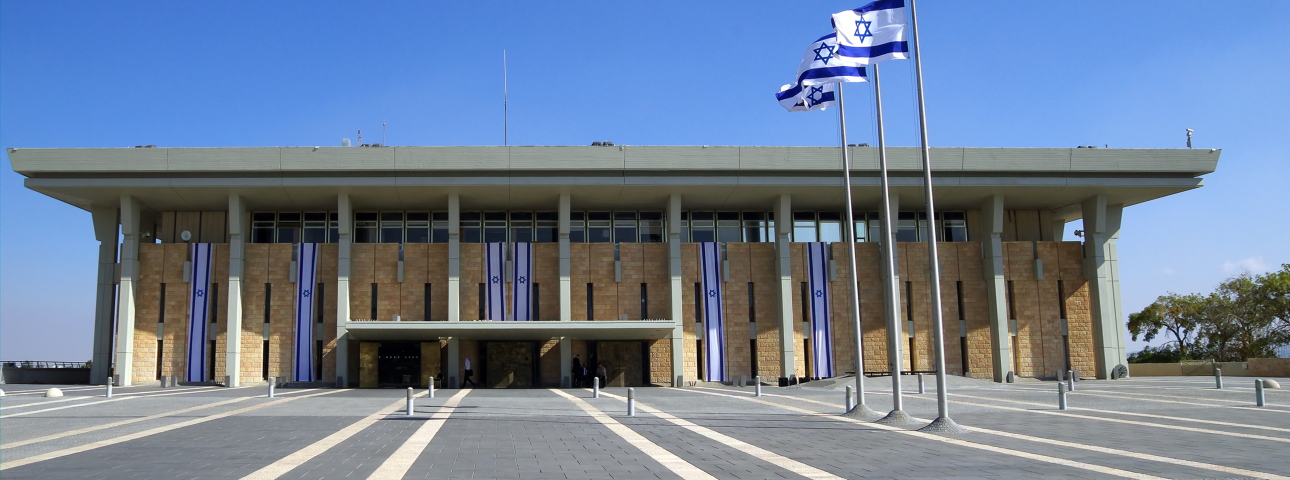Israeli Democracy as Reflected in International Indexes
Israel is facing many challenges. But in light of the relatively moderate change in most of its index scores, we may draw a modicum of encouragement about the strength and resilience of our democracy.

Flash 90
Israeli democracy has faced many challenges in recent years: four general elections in two years, the COVID-19 pandemic, the indictment and trial of a sitting prime minister who enjoys broad public support, and a new government based on a coalition that is hanging by a thread. All of this comes, of course, alongside the “normal” tensions the country must contend with, some of which have become more severe in recent years—between Jews and Arabs, between the three political camps (right, center, and left), between Jewish groups on the spectrum from the ultra-Orthodox to the secular, and of course- the continuing external conflict with the Palestinians and other countries in the Middle East, and the stubborn battle with Iran for regional hegemony. The question we must ask ourselves is whether- and to what extent- Israel has been able to withstand these challenges and hold on to its democratic character.
To answer this question, at least in part, the Israel Democracy Institute's 2021 Democracy Index examined 15 parameters of democracy, evaluated annually by international research institutions. These measures are based on several sources — experts' assessments, the country’s official statistics, and assessments by the public, in order to grade countries around the world, including Israel. Every year the research institutes publish their evaluations of each country’s performance during the previous year.
Here are the results: First, when comparing 2020 with the previous year, overall-scores for Israeli democracy remained stable. There was no change in seven parameters, an improvement in three, and a decline in five. Improvements were revealed on the indexes of the democratic process that relate to political participation—such as voter turnout and civil protests—and on democratic equality—the extent to which various groups wield political influence (ranging from expressing their ideas to exerting a real impact on decisions). The main decline in 2020 related to governance: how the government functioned, checks and balances among the branches of government public trust in government institutions, and the rule of law (the functioning of the police and the judicial system, and citizens’ trust in State laws).
In contrast with the stability over the past two years, if we compare 2020 with the previous decade we see a downward trend in most of the 15 indexes of Israeli democracy. For seven of them, the decline was severe: on the two indexes of corruption (those compiled by the World Bank and by Transparency International), the lower score reflects the increase in a wide range of corrupt practices, ranging from the local and regional levels, up to the influence exerted by the elites and private interests on the management of the country and its leaders. On the two indexes of political rights and civil liberties (Freedom House) Israel, despite the backsliding of recent years, remains a free country. The researchers do note, however, that even though its judicial system is relatively active in protecting the rights of minorities, both the political leadership and society at large discriminate against ethnic and religious minorities, including Arab citizens of Israel. Sometimes this leads to large disparities in various domains, including in political representation, enforcement of criminal law, education, and economic opportunity. There has also been a deterioration on two of the democratic process measures (V-DEM’s participatory democracy and deliberative democracy indexes) and on the equitable distribution of national resources—in light of the economic gaps, poverty rate, and the distribution of political power. There was a significant rise on only one index, that of political participation (The Economist). The others showed stability, with a slight tendency to decline (regulation, press freedom, the rule of law, etc.).
These statistics indicate that there has been somewhat of an erosion in the robustness of Israeli democracy over the past decade. This is evidenced in a comparison of Israel with other countries, but even more so in a comparison with the OECD member countries. There Israel ranks low on almost every index. Nevertheless, slogans such as “the end of Israeli democracy” or “Israeli democracy is teetering on the brink,” voiced by politicians, the media, and social networks on both sides of the political map, are extreme and exaggerated and not supported by the international indexes compiled by independent research institutes.
Yes, Israel is facing many challenges. But in light of the relatively moderate change in most of its index scores, we may draw a modicum of encouragement about the strength and resilience of our democracy. There is much to repair and improve in order to make it stronger and more solid and more similar to the democracies ranking at the top of the index—such as Norway, Denmark, and New Zealand. But we shouldn’t throw out the baby with the bath water and mourn Israeli democracy, highlight mainly its deficiencies and flaws, and ignore the fact that it has succeeded in overcoming so many challenges.
